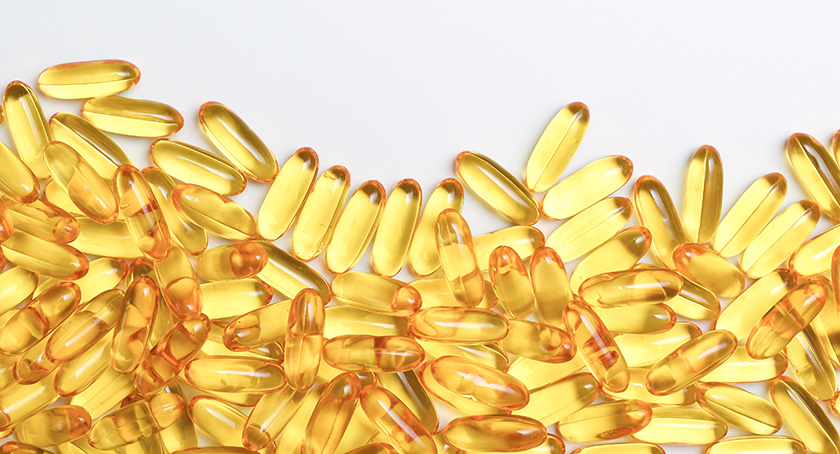Features
In Response to Coronavirus, International Panel Discusses Role of Micronutrients in Immunity
With all other preventative measures in mind, some nutrition experts don't want to downplay the science backing micronutrients and immune function.

By: Mike Montemarano

The Centers for Disease Control (CDC) suggests that, in the wake of the novel coronavirus causing COVID-19, consumers should follow everyday preventive actions to help stop the spread of respiratory diseases. These include avoiding close contact with people who are sick, avoiding touching your eyes, nose, and mouth, covering coughs, disinfecting surfaces, and handwashing.
The Food and Drug Administration (FDA), and several industry trade associations, have been concerned about supplement companies making fraudulent health claims related to the prevention, treatment, or cure of COVID-19, especially with the potential these claims have to dissuade consumers from seeking appropriate medical treatment. FDA and the Federal Trade Commission (FTC) issued joint warning letters to seven manufacturers of teas, essential oils, tinctures, and colloidal silver. These companies, the agencies warned, could be subject to a number of legal actions.
No clinical research has evaluated using a dietary supplement to support resistance to the novel coronavirus. No antiviral drug has been identified as effective in treating or curing COVID-19.
With all of this in mind, a group of researchers from several countries recently held a panel to discuss the extent of evidence surrounding what roles micronutrient intake plays in immune function.
Filling Gaps
Manfred Eggersdorfer, PhD, professor at the University Medical Center Groningen, the Netherlands, was joined by other academic researchers specializing in clinical studies on the impact of inadequate intake of micronutrients on long-term health and healthy aging, including Professors Anitra Carr, University of Otago, Jens Lykkesfeldt, University of Copenhagen, Adrian Gombart, Linus Pauling Institute, and Philip Calder, University of Southampton.
While they concurred with every suggestion being made by national healthcare authorities in response to the COVID-19 pandemic, the panel wanted to highlight evidence linking micronutrient supplementation on the whole to more optimal immune function, which they believe is important to convey to clear the air of unsubstantiated, egregious marketing claims.
Eggersdorfer, who has conducted extensive research into the roles of vitamins C and D in immune health, described some of the key points from the panel, highlighting why he believes there is room at the table to discuss the limited understanding about supporting the immune system based on a scientific platform of information in response to the outbreak of deadly pandemics.
Simply put, the panel suggested that filling in any basic nutritional gaps one might have will not hurt, and may improve immune function in ways that are not yet fully comprehended.
“When you look at the recommendations in place to reduce the risk of spreading the coronavirus, the role of the immune system is, quite often, not addressed,” Eggersdorfer said. “Authorities are acting to make things happen on short notice in response to the coronavirus, and I fully support this. On the other hand, I see that we have to work on communicating the role of the immune system in the risks and severity of disease. Do we want people to have a weak immune system at a time like this? No, of course not.”
Key Recommendations
Eggersdorfer said that scientists have already analyzed that populations with inadequate access to key nutrients are more susceptible to greater spread and severity of respiratory illnesses.
“Viral infection can get more virulent in people and animals that have inadequate status in micronutrients,” Eggersdorfer said. “This was exemplified by work done by Melinda Beck in the U.S. We can build on experiences from the past, and can argue with certainty that micronutrients help a strong immune system.”
“We summarized our views into a couple of recommendations,” Eggersdorfer added. “To put it into some key points, the recommendations are to take a multivitamin and mineral supplement to provide the optimal daily intake of vitamins and minerals. In addition, take a vitamin C supplement in the range of 200 to 500 mg per day as a healthy individual. This may change depending on one’s health status, and 1-2 grams of vitamin C would be more helpful for a sick individual.”
Additionally the panel suggested 50 mcg of vitamin D, 8-11 mcg of zinc, and 250 mg of omega-3s daily.
Science-Based Approach
Eggersdorfer said that communicating what is revealed in human studies and scientific papers, and making these findings accessible to the elderly, is especially important, as they are the most at risk of serious issues and death related to respiratory illnesses as a result of compromised immune systems.
“We know from many studies that the elderly often get an inadequate intake of nutrients,” Eggersdorfer said. “In comparison to other preventative measures, I also think that recommending nutritional supplements is safe and cost-efficient. I very much believe in and build on a science-based approach.”
“The elderly especially need to be aware that their immune systems are weak,” Eggersdorfer added.




















